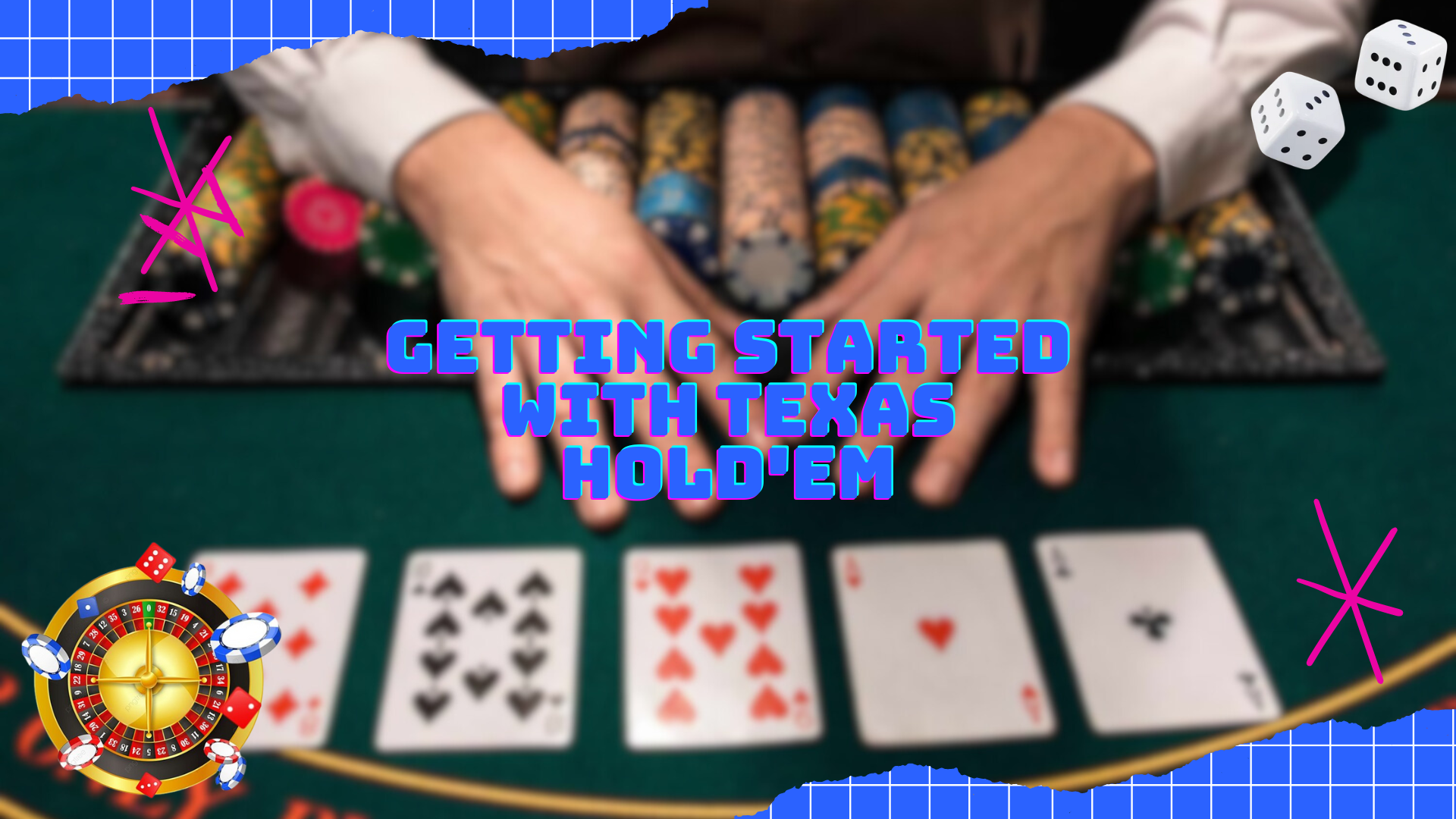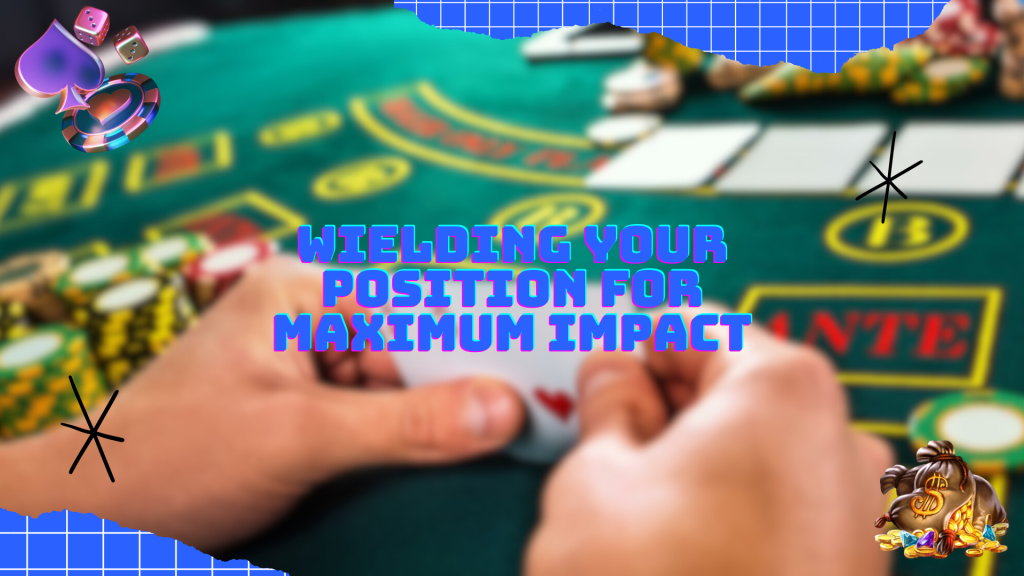
As a beginner in Texas Hold’em, one of the first things you’ll need is a texas hold’em poker set kmart to start practicing and playing hands. This comprehensive set contains all the items you need to host games at home, including dealer buttons, blind buttons, card protectors, and 500 poker chips. With quality components that bring Vegas flair, it’s a great way to immerse yourself in the game.
Below are some tips to help you make the most of your poker set on your journey to mastering Texas Hold’em:
- Learn hand rankings and common terms first. Having a solid grasp of basics like what makes a flush or a full house will make gameplay much smoother.
- Deal out practice hands and think through how you’d play each one pre-flop and post-flop. Visualizing different scenarios is invaluable.
- Play with friends first in a low-stakes friendly home game. This lets you get comfortable with the flow of gameplay before facing seasoned opponents.
- Use the dealer button and blinds to help you learn positional play. Pay attention to how your decision-making changes.
- Handle the poker chips properly, stacking them correctly and cutting out bets. This builds your confidence and skills.
With some diligent practice using your new equipment, you’ll be executing advanced moves in no time. Soon you’ll be on your way to outplaying your competition and mastering this iconic game.
Critical Pre-Flop Decisions
The pre-flop stage of any Texas Hold’em hand is crucial because it determines which hands you choose to play. Making smart decisions here separates winning players from losers. As a beginner learning how to play texas hold em, this phase requires focus as you apply new knowledge.
Below are a few essential tips for pre-flop play:
- Know which hands to open raise, call, or fold preflop based on position and the actions of opponents. Charts can help until you gain experience.
- Play only the top 10-15% of hands when starting out. Be selective with speculative hands and avoid fancy play until you have basics mastered.
- Raise pot sizes of 3-4x the big blind with premium hands to build pots when you hit strong flops. Also raise with these hands for information and to win antes.
- Vary your play sometimes if opponents pick up on patterns. Mix in some semi-bluffs or occasional limps to keep them guessing.
Making sharp reads on opponents and having pot odds mastery takes time. But following guidelines for pre-flop hand decisions will put you on the path to excelling at how to play texas hold em. Stay patient, study hard, and results will come.
Assessing Your Position After the Flop

When the flop comes in Texas Hold’em, you gain crucial new information about the strength of your hand with the additional texas hold’em hands now visible. The key is properly analyzing this updated landscape – factoring in your position and reading opponents – to determine optimal strategy.
Read also about Bankroll Management.
Having mastered pre-flop fundamentals, applying a methodical approach after the flop is vital:
- First, evaluate if the flop improves your hand, provides draws/outs, or misses altogether. Did you make a pair, pick up a flush draw, or brick out?
- Next, determine how the flop may have impacted your opponents’ holdings based on pre-flop action. Could they have hit trips or better?
- Consider if this texture connects with the range of hands in their positions. Fits their 3-betting model?
- Finally, deduce a plan after putting this new intel together. Does your equity now crush theirs? Maybe it’s time for some deception and playing possum.
Continually training yourself to think through these post-flop steps, even when not in a hand, pushes your limits. It builds your mental dexterity to handle even the trickiest runouts. So stay focused each round on maximizing your edge with the extra texas hold’em hands knowledge.
Mastering Complex Post-Flop Play
As you progress in Texas Hold’em, you’ll find the decisions become infinitely more complex after the flop. Balancing your positional advantage, board texture, and opponent tendencies pushes your skills to the top tier. To maximize wins with strong texas hold’em poker hands, integrating these advanced tactics is key:
- Leverage your position power. As last to act, pressure opponents to relinquish inferior holdings. Float in early position with draws.
- Analyze board runouts more deeply. What turns or rivers improve your equity or destroy opponents’ outs? Plan ahead.
- Assign detailed range profiles to regulars. Tailor your lines based on their personalities and past play.
- Mix up sizing with overbets or underbets to manipulate assumptions of your holdings. Keep opponents guessing.
- Fire additional barrels with polarized holdings for maximum fold equity.
- Make hero calls with vulnerable holdings because your read is just that strong. Trust your instincts.
- Leverage blockers. Consider them when assessing your outs and playing draws.
The beauty of post-flop play is working to extract maximum value from opponents through deceit and persuasion. With diligence, your advanced approach will have others punting stacks before they even knew what hit them.
Staying Solvent with Masterful Bankroll Management
Bankroll management is a vital skill in Texas Hold’em that determines how long you can remain at the competitive tables without risking ruin. There is an aspect of money management to master alongside deep strategic understanding. Unless you learn control and discipline, taking on tougher games is reckless, even with immaculate expertise.
Follow these essential bankroll tips religiously:
- Set a poker budget based on basic living expenses and stick to it. No crossing over mortgage payments into the bankroll.
- Buy-in for 20-40 big blinds at specific stakes to ensure proper coverage.
- Move down a level or take a break if you lose 20-30% of your bankroll in a session. No chasing!
- After winning a big pot, withdraw enough to drop back down to baseline to lock in profits.
- Have a separate bankroll for tournaments vs cash games and pick one format to build initially.
Making these conservative practices into unfaltering habits is half the battle. And the mental fortitude they build pays dividends by transforming you into an unflappable player in the face of any bad beat. So stay focused on smart bankroll management above all else.
Developing Poker’s Most Vital Asset
While technical skills are indispensable, truly mastering Texas Hold’em requires training your mental game above all else. Emotional control, discipline, psychology, mindfulness – these mental muscles separate winning players long-term. Without strengths here to see you through extended low periods, even the soundest strategy crumbles.
Integrate these vital practices into your poker regimen, just as with regular study:
- Meditate before sessions to enter a focused, neutral state for objective decisions.
- Commit to stop playing once frustration or agitation kick in and take a walk instead.
- Analyze your mistakes constructively to learn rather than self-criticize which leads to bitterness.
- Visualize successfully overcoming previous toughest challenges to build confidence.
- Spend time away from the table so poker life doesn’t consume your existence.
Just as top athletes have sports psychologists on their team, take your poker mental game that seriously too. Staying centered, motivated and locked into the moment is incredibly rewarding long-term. With less volatility and faster bounce backs, you extract so much more from the hard work on your fundamentals. Stay zen, my friends.
Making the Most of Educational Resources
While your growth learning directly at the Texas Hold’em table is invaluable, supplementing real-world practice with study resources accelerates understanding immensely. From books to video courses to texas hold’em online forums, surrounding yourself with poker expertise pays dividends.
Here are effective tips for integrating these assets into your learning:
- Read a highly-reviewed poker book every few months, taking detailed notes. Books allow very in-depth analysis impossible elsewhere.
- Subscribe to a training site like RIO to access elite video content. Pause and rewind to master each nuanced concept.
- Post hands with context to community forums for feedback when unsure. Gain wisdom from more seasoned perspectives.
- Study trip reports or vlogs from recognizable names for an inside look at their decision-making.
- Revisit and reinforce fundamental concepts continuously. Strong basics make everything else possible.
Approach supplemental resources with an open, discerning mindset. Absorb all the accumulated wisdom within them to fast track your skills. Soon you will pay all that rigorous study forward in the form of scared opponents and piled chips.
Executing Effective Bluffing Tactics
Bluffing is an essential if risky weapon in competitive Texas Hold’em to make opponents relinquish better holdings. Mastering this will surely bless your win rate. But misfiring bluffs torch your stack fast. Before working them in, some bluffing pointers to have handy as a texas hold’em cheat sheet:
- Select good bluff spots like on scary boards where you represent a made hand that beats typical ranges.
- Target players likely to lay down medium strength hands, not maniacs or calling stations.
- Use large overbets for polarized ranges rather than tiny stabs that get called.
- Follow through on your story with triple barrel bluffs if the turn or river is safe.
- Mix in bluffs with value bets so opponents respect your raises. Become unpredictable.
- Remain aware of your table image and adjust frequencies accordingly.
- Size your bluffs based on factors like stack depth and pre-flop action.
When used judiciously rather than spewing, crafty bluffing lets you win pots while working on your acting chops. Just be sure to pick smart bluff spots and not overdo it. Keep enemies guessing, and the chips will come.
Internalizing Essential Hand Dynamics
As you advance in Texas Hold’em mastery, understanding key hand dynamics and equity interactions becomes critical. Whether playing draws or made hands, grasping concepts like blocking effects, reverse implied odds, or merge points transforms decision quality hugely.
Study these pivotal theories intently:
- Blockers – When holding one card in a suit or of a given rank, your opponents now have fewer combos of hands with that suit or rank.
- Reverse implied odds – The risks of hitting your draw but losing money anyway because your opponent has a bigger hand. Preflop action is informative.
- Merged ranges – Certain board textures merge opponent holdings into comparable strengths. You must factor this equity into your calls.
- Equity realization – Your raw equity must still be realized to win. If you have 32% equity with a flush draw but must call three bets, realize less.
While abstract at first, soon these critical ideas will click and unlock your potential. You’ll make far fewer catastrophic blunders and find more hidden value. But only with diligence. So hit the books, apply the knowledge, and watch your win rate soar.
Wielding Your Position for Maximum Impact

In Texas Hold’em, being in position conveys tremendous inherent edge. Acting after opponents have shown weakness means freely applying pressure. From late position, you expand your maneuverability dramatically. Master positional play for an instant leg up.
Here are tips for exploiting position:
- Open-raise wider in late position since acting last after the flop brings more options.
- Make position raises to build pots you can bully when you hit strong hands.
- Float in position more with draws to realize your equity compared to early position.
- Leverage late position to bluff caught blinds with overcards since they tend to fold.
- Make tighter folds out of position when facing aggression given challenges controlling the hand.
While early position offers some bluffing deception value, nothing compares to the raw power of acting last. It lets you apply maximum pressure and ruthlessly attack any display of weakness. Position is king in poker for good reason.
Accelerating Growth by Studying the Greats
While continual practice is essential, modeling the world’s best players provides invaluable short cuts. Their accumulated knowledge from hands played and lessons learned dwarfs ours. Tap into their expertise via training content, books, live streams and more.
Here are effective methods to learn from top talents:
- Study emotion-free AI preflop charts from solvers endlessly. Absorb the logic for deviations.
- Add elite training sites to see video analysis explaining key concepts and tactics. Pause and replay pieces.
- Follow several high-stakes pros on YouTube and Twitch to pick up meta adjustments and table dynamics.
- Read books like Harrington, Sklansky and modern players for time-tested strategy.
- Memorize hand histories of famous tough spots they faced for the logic. What would you do?
Approach top players as mentors. Imbibe their teachings through quality repetition. Soon their wisdom manifests in quicker reads and better folds. Your game ascends standing on the shoulders of giants. Onward and upward we go.
Building Your Personalized Game Plan
With endless Texas Hold’em tactics and techniques to choose from, settling on an ultimate texas hold’em strategy tailored to your skills and style accelerates success tremendously. Define your identity through proper self-review first.
Ask yourself these questions:
- Do I play better in aggressive or passive modes? Am I more tactically or mathematically inclined?
- What areas have brought me the most success historically? Where do I leak the most chips?
- Which types of opponents give me the most trouble typically? Who do I feast on?
- How does my decision-making change when on tilt or fatigued? How long is optimal session length?
Once you compile honest answers, study various styles and emulate strengths of the approach best aligned. Adopt GTO concepts for balance while emphasizing tactics playing to your natural edge. Continually refine this blueprint over time as your journey brings new lessons. But having an intentional, reasoned plan beats flying blind.
Leveraging Psychological Tendencies
Success in poker hinges tremendously on understanding psychological elements within oneself and opponents. Our minds constantly take mental shortcuts that warp perception from optimal decisions. Mastering the psyche’s influence will pay dividends.
Integrate these pivotal mental insights:
- Confirmation bias causes us to give more credence to evidence backing our beliefs and discount contradicting information. Challenge assumptions.
- Risk tolerance fluctuates tremendously between people and environments. What seems reasonable to you may seem crazy to another.
- Results-oriented thinking traps players judging decisions on outcomes rather than logic. Ignore what happened next when reviewing.
- Overconfidence disproportionately affects those newer to poker causing them to overplay hands and bluff wildly without cause. Stay humble.
While technical skills establish fundamentals, your mental approach glues everything together to thrive in the chaos of a table long-term. Remember that psychology permeates every layer of this game. Train yourself to recognize when it rears its head.
Wrapping Up Your Poker Education
Reaching mastery in Texas Hold’em requires immense dedication across technical, psychological and theoretical realms. But by rigorously training fundamentals first, then progressively integrating more complex strategies, your skills will hit remarkable heights. Wherever you currently stand in your development, remain focused on continual incremental growth through practice, study and reflection.
As next steps on your poker journey:
- Catalog your strengths and weakness areas accurately, then create a training plan targeting improvements. Be honest.
- Set measurable goals for quantifiable progress to maintain motivation like hand frequencies, win rates by position, minimizing significant errors.
- Connect with a like-minded study group to accelerate learning and swap perspectives on tough concepts.
- Commit time specifically for reviewing your hands objectively. Solidify lessons learned.
The keys are nurturing a growth mindset, prioritizing volume with concentrated energy and not losing sight of overarching objectives amid tactics. You’ve chosen a richly complex and stimulating game to pursue. Trust the process of becoming fluent through immersive repetition to get rewarded exponentially on the other side. Stay confident and persistent to realize your poker potential.


